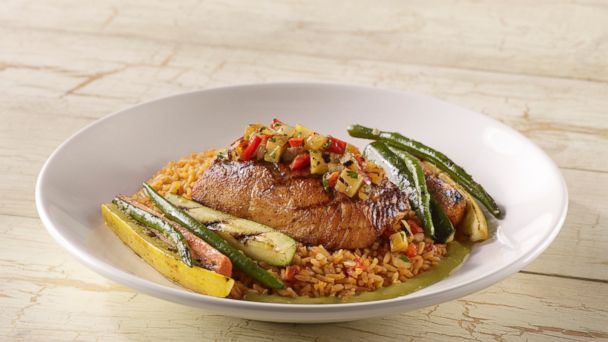How to Eat Like an Olympic Bobsledder

Getty Images
The biggest competition of your life is one week away.
It's in a foreign country, in a totally different time zone, in a totally different language. Everything is different - except the food you eat.
"When it comes to the Olympics you never try anything new. Everything's been tested and tried here," said Jenn Gibson, a sports dietician with the United States Olympic Committee.
Team USA's athletes have already departed for Sochi, where they are beginning to prepare for the biggest day of their sports careers.
The USOC, which has been preparing for the Sochi Olympics for three years, has sent three full-time dieticians with the USA's 230 athletes going to Sochi, along with a staff of 6 to 10 culinary team members from its facility in Colorado Springs, Colo., to help recreate dishes the athletes are used to.
"They left last weekend and had bags and bags and bags of food, and copious of amounts of peanut butter," Gibson said.
On a day of competition, Gibson said, most athletes will have a lean piece of chicken or fish, lightly grilled with no fats, a heaping portion of white rice or easy-to-digest carbohydrates, and a few cooked vegetables.
Now is not the time to experiment, she said.
The athletes eat in a cafeteria in the Olympic Village with the other countries' athletes.
"At all Olympic games they end up doing a culturally diverse menu, so the cafeteria is divided into a North American food section, a Russian food section with traditional Russian fare, a vegetarian section, a Middle Eastern section, and an Asian section," she said. "We tried to bring over as much of our normal Team USA cafeteria fare as possible, so our salad bar which is our staple, a really nice well stocked salad bar, a few meat entrees, and a custom grill by one of our famous chefs here, Flower. Our athletes love her. "
She said that athletes that require a lean physique and huge energy output, like cross-country skiers, will eat differently than hockey players, for instance. The ratios of protein to carbohydrates to vegetables varies, as well as the types of grains that each athlete will eat.
"With all of the anxiety that comes with the Olympics, there can be a lot of stomach problems, so food needs to be easy to digest," she said. "They'll be drinking a ton of water. We'll get them to salt their food to increase electrolytes to retain water from dehydration, and they'll have a high carbohydrate dessert like fruit or Greek yogurt. Our athletes absolutely love Greek yogurt."
The USOC employees brought over heaping bags filled with trail mix, cereal, meal replacement bars, gels, powders, and nuts to keep athletes going while they're out in the competitions.
"Our athletes will eat cereal any time of day, anywhere. It's easy and a convenient snack, either dry or with milk," she said.
Most of the athletes have been to Sochi before in order to become acquainted with the culture and athletic event spaces, Gibson said. But the USOC team in Colorado started introducing Russian foods to their diets anyway a few months ago, including pickled beets and pickled eggs, which she said provide good gut bacteria for the athletes.
And after the big day of competing, the athletes are free to let loose, she said. They can eat whatever they want and, of course, drink whatever they want.
"One thing they're abstaining from is alcohol, so they'll have a few drinks afterward," she said.